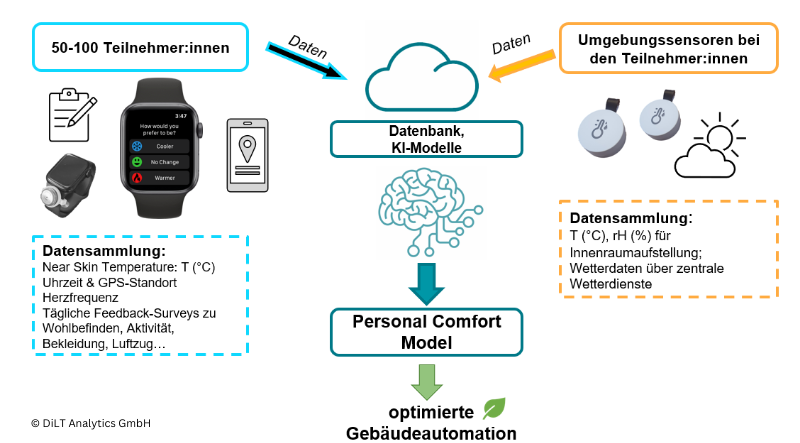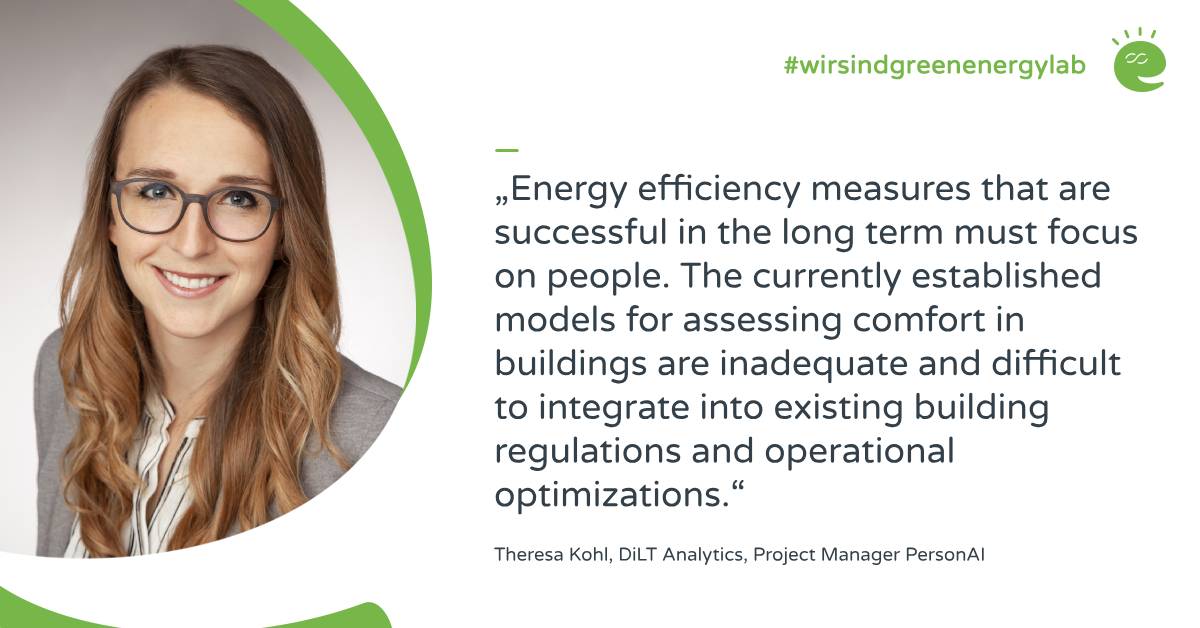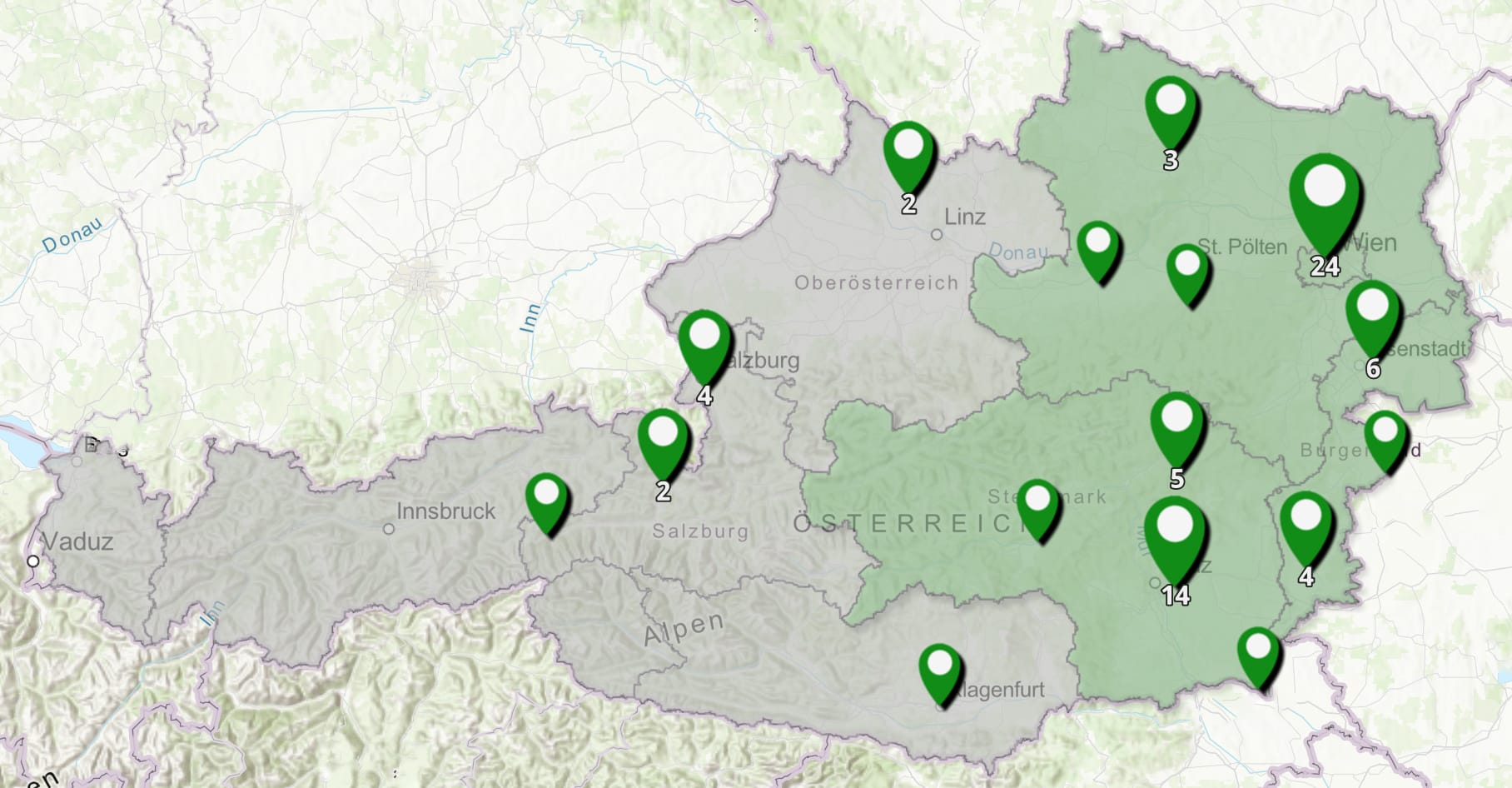PersonAI
User-centered AI-based energy services built on personal preference models
The European Union (EU) has set itself the target of increasing energy efficiency by 32.5% and achieving a 32% share of renewable energy by 2030. At present, the building stock in the EU is still energy-intensive and predominantly inefficient. It is responsible for 40% of final energy consumption and 36% of CO₂ emissions in the EU. In this context, buildings need to evolve from their current static and inefficient profile to intelligent dynamic actors while meeting the needs of users. The past has shown that the successful implementation of energy policy measures depends heavily on social factors such as social acceptance, tolerance and motivation to participate.
Currently, AI-supported energy services such as Model Predictive Control (MPC), demand side management, forecasting, etc. are becoming increasingly important and relevant in practice due to the rapid development of available technologies. However, the integration of consumer feedback and preferences into the control loop is just as crucial in order to sustainably reduce the energy demand of buildings and neighborhoods in the long term and to use energy services such as demand-side flexibility.
Objective of the PersonAI project
The objective of PersonAI is to use the further development of these technologies to increase energy efficiency in the building sector and improve comfort. The developments in PersonAl aim at a radical innovation in the area of user-centered energy services in the building sector. Initial studies and simulations estimate energy savings of between 21.81% and 44.36% through AI-based energy services and comfort improvements of between 21.67% and 85.77% through personal comfort models.
Approach and methodology of the PersonAI project
The combination of these two approaches with the development of AI-based personal comfort models form the core of the project. For this purpose, a broad-based long-term study with 40-50 people and detailed data collection (surveys in combination with skin temperature, heart rate, etc.) of a cross-section of the population that is as representative as possible is planned. The resulting personal comfort models are then aggregated and demonstrated in a proof of concept in an energy service selected jointly with relevant stakeholders.
The following milestones were defined:
- Implementation of the first large-scale European long-term study on personal comfort models, development of robust and AI-based personal comfort models
- Proof of concept for user-centered energy services based on personal comfort models
Through the interdisciplinary consortium, PersonAI combines the advantages of personal comfort models, smart buildings and breakthroughs in the field of AI.
Links:
- PersonAI in TGA Planerjahrbuch 2025 (german only)
The following model solutions are being developed in the PersonAI project:
User-centered AI-based energy services built on personal preference models
Media reports on the project
PersonAI in the TGA Planerjahrbuch
Guest article by Theresa Kohl in the TGA Planerjahrbuch 2025
To the article


